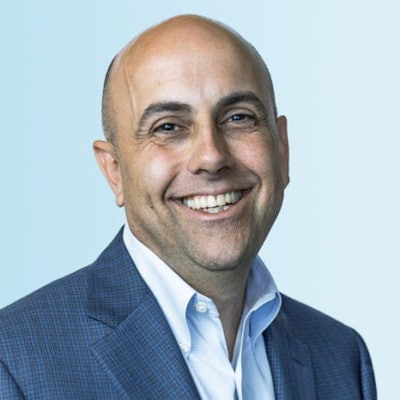With colleges and universities eliminating or limiting in-person campus events due to the COVID-19 pandemic, prospective students are forced to engage with institutions through a screen.
However, software platform Wisr—recently acquired by educational consultant EAB—is looking to build peer to peer connections and allow prospective students to understand the environment at select institutions.
 Chris Marett
Chris Marett“Students who haven’t had that opportunity to make the connection may not have actively considered that school or may have actually given up on the idea of going to college at all,” said Chris Marett, president of EAB’s enrollment and advancement marketing services.
Through mutual pairings, students can connect with peers who share similar interests. Additionally, faculty members can answer students’ questions and provide more details about existing majors and courses.
Over the last few years, 75 institutions have become involved and over 75,000 students have used the platform, according to Marett.
“The schools very much believe that those interactions are making a difference in helping students understand what life is like on campus,” he said, “with the ultimate goal of they want to welcome more of these students to campus as students in the future. They feel like it is a compelling platform for creating those connections, which ultimately leads to enrollment on campus.”
After joining Wisr last month, 945 admitted students at Indiana University (IU) have engaged with the platform.
“It is really letting IU build a conversation among our students across the country and really across the globe,” said Dr. David B. Johnson, vice provost for enrollment management at IU. “We are excited about what it can do. The community building aspect is just great.”
Beyond Wisr, the university also established Navigator IU, which consists of five virtual flagship programs to support underrepresented students and their parents. The programs focus on providing workshops and online college preparatory curriculum, offer connections with current students and give insight into the academic, social and cultural opportunities available on campus.
“Post-pandemic, we are going to have to really be looking at what do we keep, what do we continue to do and then what do we return to,” said Johnson. “How do we balance that between virtual visits and in-person visits?”
With restrictions—no visits to indoor spaces and a limit of 10 participants—IU also recently reinstated on-campus tours.
“Given where we are with the pandemic, it is the best we can offer at this time,” said Johnson. “But it’s to give people a chance to see the campus. The old saying that ‘seeing is believing,’ getting the feel of the campus. We fully acknowledge it’s not everything we normally would have done.”
Looking to provide prospective students with insight beyond online orientation sessions, faculty, staff and students at Florida State University (FSU) created various podcast series.
With the goal of “honoring diversity and practicing inclusion,” the Diversity Talks Podcast, for example, incorporates the voices of the campus community in equity-based conversations.
 Sophie Mettler-Grove
Sophie Mettler-Grove“The intention here is to generate a dialogue about how we can create the most inclusive spaces so that everybody can feel welcome and they can feel safe,” said Dr, Elçin Haskollar, program director of the Global Citizenship Certificate at FSU.
One podcast episode highlights the experiences of Dr. Petra Doan, a transwoman who serves as professor and Ph.D. program director at FSU.
“For example, if you’re a student who identifies as a member of the LGBTQ community, FSU has definitely been stated as a very inclusive space for LGBTQ students…,” said Dr. Tanu Kohli Bagwe, co-producer of the podcast and teaching faculty for the Global Citizenship Certificate at FSU. “Professor Doan’s episode will help those prospective students understand that FSU is a community and there will be people like me.”
Beyond storytelling, each episode also provides learning objectives and questions to incorporate the ideas in a classroom or even a dinner conversation.
With COVID-19 contributing to travel bans, embassy closures and overall health risks, institutions have also implemented new recruitment strategies to stay engaged with prospective international students.
Oberlin College, for example, offers virtual student panels, regional events and information sessions to create connections.
“For the students that are engaged, they are able to make an even informed enrollment decision then they have been able to in the past,” said Sophie Mettler-Grove, senior assistant director of admissions at Oberlin.
Despite challenges with Zoom fatigue, the virtual setting has created the ability to reach more students and gain more access to underfunded schools.
“In some ways, I have had more facetime with counselors and students virtually as we have been able to personally connect throughout the year and are not interrupted by a crowded college fair or high school visit,” she said.
In 2020, like other institutions, Oberlin faced enrollment declines among international students. However, the number of applications has since increased this year.
“The world is really watching how COVID-19 is continuing to progress in the countries where they applied to that will make an impact on where they choose to enroll,” said Mettler-Grove.
Sarah Wood can be reached at [email protected].



















